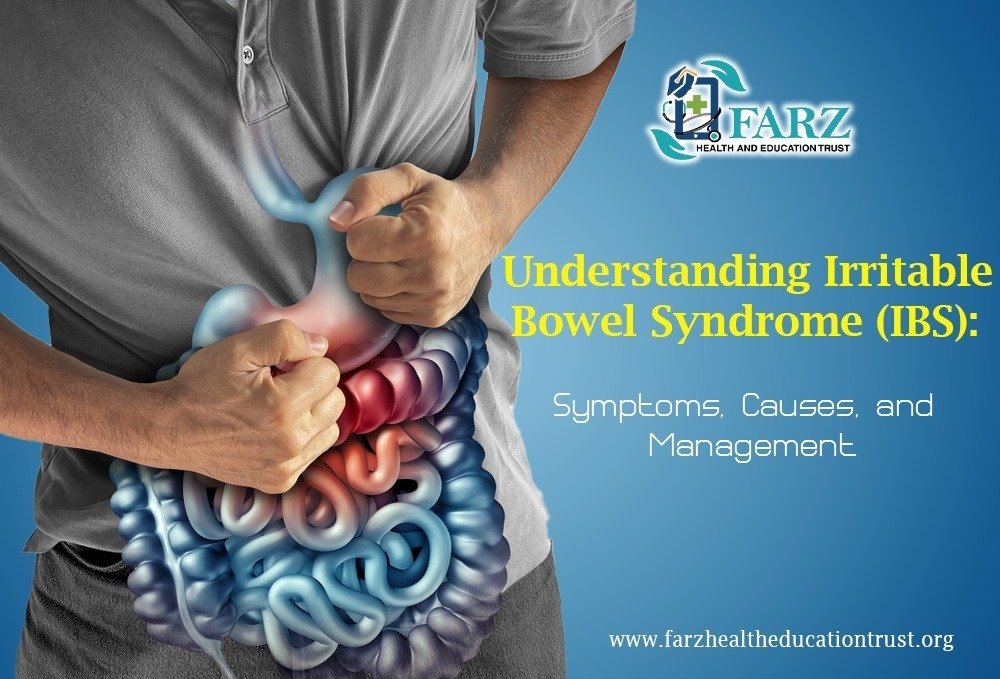
Introduction:
In the tapestry of health issues that many of us face, Irritable Bowel Syndrome (IBS) is a common thread that weaves through countless lives. This chronic condition affects the large intestine and, while not life-threatening, it can significantly impact one’s quality of life. If you or someone you know is grappling with IBS, understanding its symptoms, causes, diagnostic methods, and management strategies can be the first step toward reclaiming control and comfort.
Symptoms of IBS:
IBS is characterized by a variety of symptoms that can vary in intensity and duration from person to person. The most common signs include:
- Abdominal pain or discomfort: Often described as cramping, typically relieved by bowel movements.
- Bloating and gas: These may cause visible abdominal swelling and discomfort.
- Diarrhea or constipation: Some individuals experience frequent, loose stools, while others may struggle to pass stool—or alternate between the two.
- Mucus in the stool: Some individuals notice clear or white mucus.
Symptoms often worsen after eating and can be exacerbated by stress.
Causes of IBS:
The exact cause of IBS remains unclear, but several contributing factors include:
- Altered gut motility: Abnormally fast or slow movement of food through the intestines.
- Visceral hypersensitivity: Increased sensitivity to abdominal pain.
- Psychological factors: Stress and anxiety are known triggers.
- Post-infectious changes: IBS may follow gastrointestinal infections.
- Gut microbiota imbalance: Disruption in healthy gut bacteria (dysbiosis).
Diagnostic Tests for IBS:
Diagnosing IBS can be a challenge since there’s no specific test to confirm the condition. Instead, it’s a diagnosis of exclusion—ruling out other conditions like IBD, celiac disease, or infections.
Here’s how the diagnostic process usually unfolds:
1. Clinical Diagnosis:
Physicians primarily rely on symptom-based criteria, like the Rome IV criteria, which requires:
- Recurrent abdominal pain, on average, at least one day per week in the last three months
- Associated with two or more of the following:
- Related to defecation
- Change in frequency of stool
- Change in form (appearance) of stool
National Deworming Day: Steps to Take for a Worm-Free Future
A detailed patient history and physical examination are essential, including dietary habits, emotional health, and family history.
2. Stool Tests:
Stool samples help exclude infections, parasites, or inflammatory conditions:
- Fecal calprotectin and fecal occult blood test are often used to rule out IBD or bleeding.
- Testing for bacterial overgrowth or parasites may also be conducted in chronic cases.
3. Blood Tests:
Blood work helps rule out other systemic or autoimmune conditions, such as:
- Celiac disease (via tTG or EMA antibodies)
- Anemia, which could suggest malabsorption or bleeding
- Thyroid function tests, to exclude hyper/hypothyroidism
4. Lactose and Fructose Intolerance Tests:
These breath tests identify malabsorption of specific sugars, which can mimic IBS symptoms.
5. Colonoscopy or Sigmoidoscopy:
Used especially in patients over 50 or those showing “red flag” symptoms like:
- Unexplained weight loss
- Rectal bleeding
- Family history of colorectal cancer
- Anemia
These procedures help rule out colon cancer, polyps, or inflammatory bowel disease.
Kidney Care: Essential Tips for a Healthier Life
Management and Treatment of IBS:
While IBS has no known cure, it is very manageable with a comprehensive approach. Treatment plans are tailored based on the type and severity of symptoms:
- Dietary Adjustments: A low FODMAP diet (eliminating fermentable carbs), increasing fiber (for constipation-dominant IBS), and identifying personal trigger foods.
- Stress Management: Practicing mindfulness, meditation, CBT (Cognitive Behavioral Therapy), and yoga can help reduce symptom flare-ups.
- Probiotics: These can help restore balance in the gut microbiome and reduce bloating or irregularity.
- Regular Physical Activity: Promotes healthy digestion and reduces stress.
- Medications:
- Antispasmodics for cramping
- Laxatives for constipation
- Antidiarrheals for diarrhea
- Antidepressants (low-dose) may help modulate pain and stress
Celebrating Women: Stories of Strength and Resilience
Conclusion:
Living with IBS can be challenging—but it doesn’t have to control your life. With the right awareness, diagnosis, and management plan, individuals can significantly improve their quality of life and regain daily comfort.
Each case of IBS is unique, and working closely with a qualified healthcare provider is essential to finding the best personal strategy.
Stay informed. Stay proactive. And most importantly—stay hopeful. A healthier, more manageable future is possible.
